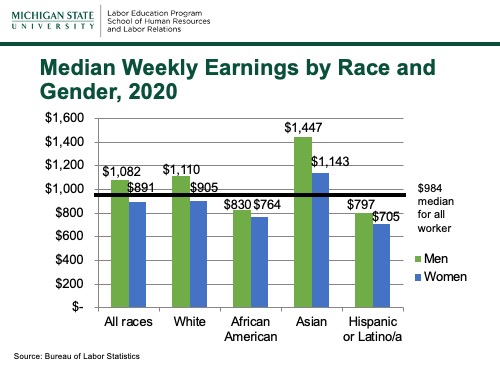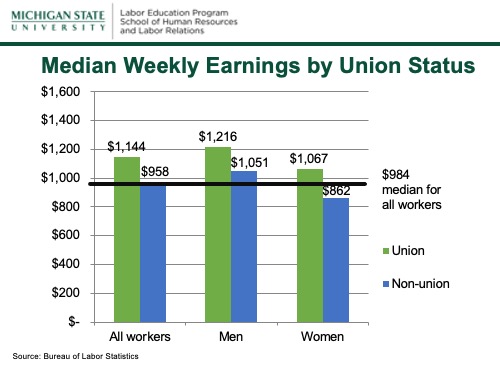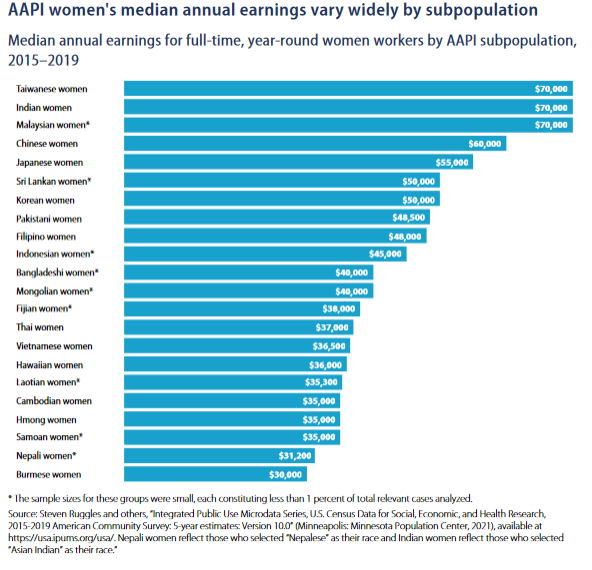Income Data
2020 INCOME DATA BY RACE AND GENDER
The U.S. Bureau of Labor Statistics reports income by race and gender every year. The most recent data, for 2020, indicates that average weekly earnings were $984 per week, or about $51,000 year. However, the data also show that women make about 82 percent of what men do, and African American and Hispanic or Latino/a/x workers make less than whites. Asian men are the highest paid group. These data are averages for the workforce overall. They don't take into account the specific job held, level of education, region of the country, or any other factors that might affect pay. But study after study finds that when we do compare wages for the same jobs, we still find substantial differences by race and gender.
Source: U.S. Bureau of Labor Statics
Category: Race, gender, intersectionality
2020 INCOME DATA BY UNION MEMBERSHIP
One key advantage of unions is that union members make more money than non-members, by about $9,500 per year. Another advantage is that unions do a lot to decrease the gap in wages by race and gender. Union women make 88 percent of what union men do. But non-union women make only 82 percent of what non-union men make, and only 71 percent of what union men make. Unions have a similar impact on the difference in wages for African American and Hispanic or Latino/a/x workers. You can find the data from the U.S. Bureau of Labor Statistics here.
Category: Race, gender, intersectionality
AAPI WOMEN'S INCOME BY SUBPOPULATION
When we look at averages for racial and ethnic groups, Asian Americans are among the highest paid. But there is substantial diversity within the Asian American and Pacific Islander (AAPI) group itself. There are more than 50 ethnic groups in this category, and they have different histories, cultures, and employment patterns. This chart shows the median earning for AAPI women by subgroup.
Source: The Economic Status of Asian American and Pacific Islander Women, Center for American Progress, March 4, 2021.
Category: Race, gender, intersectionality




